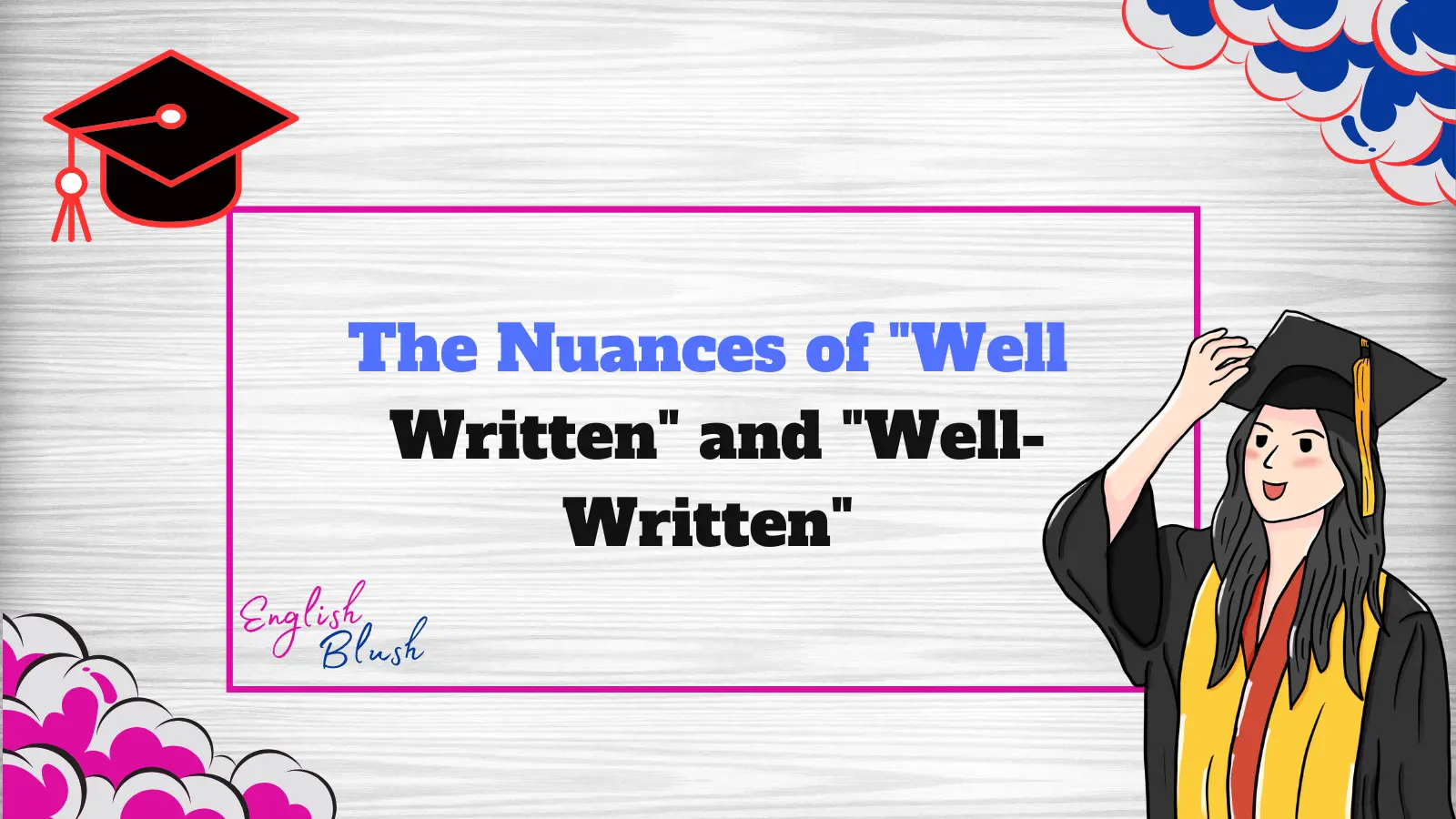Language is a fascinating tool that adapts to different contexts. Words and phrases change forms depending on how they’re used. This article explores the phrase “well written,” its proper usage as a noun, adjective, and verb, and how these roles impact punctuation and spelling. Alongside this, we will examine “one third,” “one-third,” and common mistakes associated with them. Let’s break it down step by step to simplify this topic for all learners.
Well Written or Well-Written?
The distinction between “well written” and “well-written” lies in how they function in a sentence:
- As an Adjective (Hyphenated: Well-Written)
When used before a noun to describe it, “well-written” is hyphenated.- Correct Example: The novel was filled with well-written dialogue.
- Incorrect Example: The novel was filled with well written dialogue.
Here, “well-written” functions as a single modifier describing “dialogue.” The hyphen shows these words are linked.
- As a Predicate Adjective (Not Hyphenated: Well Written)
When the phrase follows the verb in a sentence, it is not hyphenated.- Correct Example: The essay is well written.
- Incorrect Example: The essay is well-written.
In this case, “well written” stands alone as a description of the essay without needing the hyphen.
- As a Noun Modifier (Hyphenated: Well-Written)
The hyphen is required when the phrase acts as a compound adjective directly modifying a noun.- Correct Example: She admired his well-written piece.
- Incorrect Example: She admired his well written piece.
- As a Verb (Two Words: Well Written)
In contexts related to composition or quality writing, the phrase works as a descriptive expression but not as a singular word.- Correct Example: Your book has been well written.
- Incorrect Example: Your book has been well-written.
One Third or One-Third?
Similarly, “one third” and “one-third” serve different purposes based on sentence structure:
- As a Fractional Adjective (Hyphenated: One-Third)
When used as an adjective before a noun, the hyphen is required.- Correct Example: A one-third portion of the cake was gone.
- Incorrect Example: A one third portion of the cake was gone.
- As a Fractional Noun (Hyphenated: One-Third)
When referring to a fraction as a standalone noun, it is still hyphenated.- Correct Example: One-third of the class stayed after school.
- Incorrect Example: One third of the class stayed after school.
- As a Numerical Expression (Not Hyphenated: One Third)
When used in mathematical explanations or as part of a broader numerical idea, hyphenation isn’t needed.- Correct Example: Divide the board into one third and two thirds.
- Incorrect Example: Divide the board into one-third and two-thirds.
- Incorrect Unhyphenated Forms
- Incorrect Example: One Third students failed the exam. (should be: One-third students…)
This form confuses readers, especially without proper placement of hyphens for clarity.
- Incorrect Example: One Third students failed the exam. (should be: One-third students…)
Why Grammar and Punctuation Matter
Following grammar rules like hyphenation and proper phrasing ensures writing is clear and professional. Misusing hyphens can change the meaning of sentences. For example:
- Incorrect: A man eating tiger.
- Correct: A man-eating tiger.
Attention to detail helps avoid ambiguity and builds credibility in communication. Adherence to grammar rules is not just a stylistic choice but a necessity for effective writing.
Consistency in UK and US English
The rules for “well written,” “well-written,” “one third,” and “one-third” are the same in both UK and US English. This universality simplifies learning and ensures clarity across regions. Whether writing a formal essay in the UK or preparing a report for a US audience, the grammar remains constant.
Summary: Key Points
- “Well-Written” is a hyphenated adjective when modifying a noun directly.
- “Well Written” is used without a hyphen as a predicate adjective or part of a verb phrase.
- “One-Third” requires a hyphen when functioning as an adjective or noun.
- “One Third” is correct for certain numerical contexts without hyphenation.
By following these rules, your writing will be clear, consistent, and easy to understand. Keep practicing, and soon these distinctions will feel natural, boosting your confidence as a writer!





